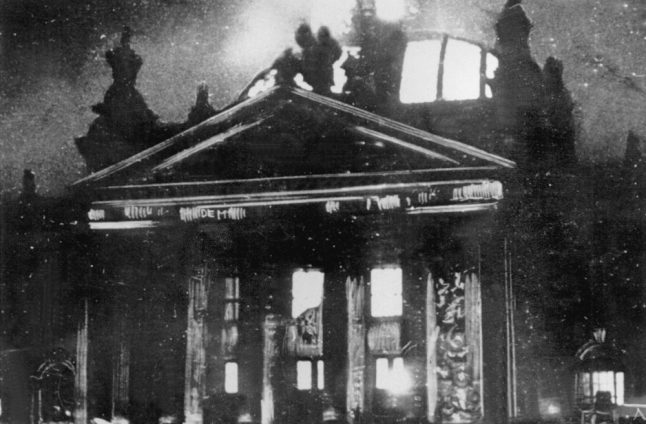The Reichstag blaze remains a source of controversy in Germany as Adolf Hitler used the fire to claim a Communist plot and consolidate his influence with a crackdown.
It was seen as a pivotal moment in the Nazi rise to power.
Germany's RND newspaper group on Friday published an affidavit of a former Nazi paramilitary dating from 1955 and found in archives of a Hanover court, which confirmed its authenticity.
In his testimony, the Nazi official clears Dutch trade union member Marinus van der Lubbe of setting fire to the Reichstag.
A Nazi court found Van der Lubbe guilty of arson and treason and he was beheaded in 1934. But his case remained controversial.
Some historians say he admitted to starting the blaze alone in an attempt to stir Germans to rise up against the Nazis. Others believe he was a scapegoat for a fire the Nazis started themselves to justify the crackdown.
In 2008, Germany posthumously pardoned him under a law introduced in 1998 to lift unjust verdicts dating from the Nazi era.
In his testimony, the former paramilitary Hans-Martin Lennings, who died in 1962, said he took Van der Lubbe from an infirmary to the Reichstag where they noticed a strange burning smell on arrival.
According to Germany's DPA news agency, which also said it has a certified copy of the document, Lennings protested like his comrades against the arrest of the Dutchman.
“We were convinced that Van der Lubbe could not have been the arsonist since we had noticed that the fire was already lit at the Reichstag when we delivered Van der Lubbe,” it said citing testimony.
He said he and other colleagues were detained because of their protests and forced to sign a paper saying they were unaware of anything about the incident.
The Reichstag, the imposing stone building which housed the Nazi-controlled parliament, was gutted by the fire on February 27, 1933.
It re-opened as the seat of the lower house of the parliament of a reunited Germany in 1999 after it was extensively renovated and capped by a glass dome.
READ ALSO: Berlin woman revives Red Army ghosts in Reichstag graffiti



 Please whitelist us to continue reading.
Please whitelist us to continue reading.
Member comments